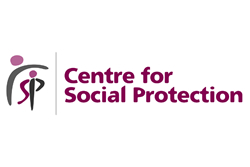Please note that this is a change to the previously published dates.
The Centre for Social Protection (CSP) is pleased to announce the third round of the short course ‘Social Protection: policies, programmes and evidence’. This 4-day course focuses on getting you up to speed with current knowledge, evidence and practice of social protection. It offers a unique opportunity for policy makers, practitioners and researchers to broaden their knowledge base and gain critical insight into the most recent thinking about social protection.
Aims
This course aims to provide participants with a broad knowledge base of approaches to social protection, to develop an understanding of challenges in design and implementation in programming and to critically assess the current evidence base. Participants will be engaged in an interactive manner and are strongly invited to share their own experiences and views on social protection throughout the course.
Previous course participants have said:
“I feel that now I will be able to more actively engage in project design, implementation and review and how to best include social protection in development dialogue.”
“I feel better able to offer internal critique or advice on policy direction and to identify where social protection can enhance the achievements of sectoral programmes.” [2014 participant]
Course content
The course is organised around three different themes, and tackles distinct topics within those themes.
Theme 1: Building a knowledge base of social protection
- Models of social protection
- Social protection instruments
- Institutional and regional approaches to social protection
Theme 2: Designing and implementing social protection programmes
- Targeting social protection
- Delivering social protection
- Social protection systems
Theme 3: Evidence of what works in social protection
- Current evidence on social protection
- Monitoring social protection
- Evaluation and policy analysis
These topics will be complemented with topical issues in social protection, which could include taxation and social protection, social protection and graduation and gender- and child-sensitive social protection. Case studies and examples will primarily be drawn from experiences in low-income countries.
More information can be found in the course brochure.
Feedback from previous course participants includes:
“The course provided me with the conceptual framework useful to organise my own knowledge.” [2015 participant]
“The course had a good mixture of theory and applications and brought good case studies for practical applications.” [2014 participant]
Course structure
This 4-day course places individuals at the centre of their learning, building on IDS’ strong participatory background, ensuring that all participants benefit from the course to the best extent possible. The training will be interactive, inclusive and participatory. Teaching methods include plenary presentations, facilitated plenary discussions, hands-on exercises, case studies and group discussions. The combination of techniques serves to build on the knowledge already available and to draw on participants’ own experiences of social protection.
A previous participant indicated:
“Very to the point presentations covering a large range of topics; very good lecturers, participants with a wide range of experience; good mix of lectures and exercises.” [2014 participant]
Course audience
This course is open to a wide audience of policy makers, practitioners, researchers and project managers who are already or who will be working in the area of social protection. The course aims to provide a platform for strengthening conceptual grounding and for engagement in critical debate about knowledge, practice and evidence on social protection.
Feedback from previous participants includes:
“Good learning from others, hearing about other countries stages and experiences in SP.” [2015 participant]
Course level and entry requirements
The course will be taught in English. To derive the maximum benefit from the course, participants should be proficient in English and able take an active part in course discussions. As the course wishes to engage participants in critical debates on social protection, prior knowledge of social protection is desired.
Teaching Staff
This course has been developed by Keetie Roelen (Co-Director CSP) and Stephen Devereux (Co-Director CSP), who have extensive experience in providing social protection training against the backdrop of their research, evaluation and policy advice work in social protection. The teaching team will also include other members of the CSP.
Application procedure
All applicants should read the Terms and Conditions before completing an application form. The application procedure is a 3-stage process:
- Stage 1: Deadline for applications is Friday 12 February 2016. Applications can only be made by completing the online application form below.
- Stage 2: Applicants will receive the outcome of the review process in the week beginning 29th February 2019. Successful applicants will receive the Stage 2 form and an invoice for the course fee. Places on the course are not guaranteed until fees have been received.
- Stage 3: Once fees have been received, applicants will receive confirmation of a place on the course and a letter to support their visa application (if required).
Fees
£1,450 – The fee includes the tuition fees, course materials, lunches, refreshments and one group dinner. It does not cover accommodation or travel costs.
Please contact the Course Coordinator Liz O’Brien if you have any queries.
Accredited by the British Accreditation Council for Independent Further and Higher Education as a Short Course Provider.
Applications for this short course have now closed.
If you wish to be kept informed about future short courses please contact the Course Coordinator.
